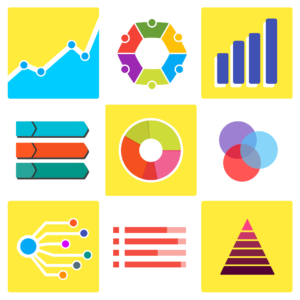Digitalisation benefits the entire insurance industry.
From simplifying complex policies and streamlining approval processes, digitalisation can have a positive impact on all parties including customers, agents and brokers.
On the internet, 80%1 of local financial research is largely centered on insurance policies as customers gather more information before committing to a purchase. As a result, it has become crucial for insurers to provide a strong digital experience for customers.
However, a recent global study found that over 58%2 of senior-level executives in the insurance industry believe they are behind other financial services when implementing digital technologies. This indicates a significant gap between the industry norm and what customers look for. To leverage the benefits of digitalisation for the insurance industry, it is key for insurers to understand how they can best adopt digital technologies to provide customers with a personalized service experience.
Implementing digitalisation effectively
To begin with, there are several touch points along the customer journey where digital offerings can most prominent feature in pre-sales, sales and post-sales. In order to generate greater traction online and secure customer interest, insurers can consider implementing an engaging and interactive pre-sales segment. This may be achieved through mobile and online apps, games, and quizzes. Upon capturing the customer’s interest, insurers can offer tailored product configurations and deliver competitive individualised offers to cater to the customer’s needs.
On the customer-facing front, extensive product training used to be a key requirement for most insurance agents, bank agents or brokers. However, today we are also increasingly seeing that technical product knowledge can be embedded directly in their sales tools. On the internal back-end systems, digitalization can be applied by optimising the sales process, using chatbots to deliver instant online assistance or deploying artificial intelligence for customised fact-finding and needs-analysis.
Although many insurers have developed end-to-end processes including e-signing and e-submission, this has not yet been seamlessly implemented for more complex life insurance cases. However, with greater advances in technology, more holistic integration of insurance processes can be expected in the near future. Post-sales, digitalisation can also deliver a unified service experience through claims processing apps and tools or loyalty programmes that can more effectively manage and upsell the services.
Leveraging the human connection

online finance via pexels
With easy access to the internet, it is becoming more commonplace for consumers to purchase simpler policies like motor, travel, basic savings, health and life insurance through online insurance platforms.
For more comprehensive insurance policies, customers still visit agents, brokers and banks to get more insight.
At this stage, digitalisation comes into play as technology can go a long way in reducing complexity for the customer, ultimately making the product easier to sell.
The entire customer experience is enhanced with the help of digital technology. As insurance policies become easier to purchase online, it then becomes key for insurers to deliver a differentiated and more personalised experience to customers.
Understanding data analytics and AI

Analytics statistic via Pixabay
Data analytics and artificial intelligence are already the buzzwords for forward-looking insurers. For the intermediary segment, the mandatory fact-finding and needs-analysis process is rapidly becoming more intuitive, customised and engaging.
Although the implementation of data analytics and AI is not yet widespread within the industry, it has been increasingly integrated into the digital insurance sales process. For example, when querying for information such as age, income, and preferences – AI is being applied by streamlining the dialogue and recommending the right products.
Insurers can also leverage on data analytics of the customer purchasing behavior and use product and price anchors or smart comparators to help guide the customer towards a more confident purchasing decision. Overall, insurers will be able to employ data analytics and AI in other key processes of the customer engagement process in the future.
Digitalisation has already begun to change the face of the insurance industry, and agents can increasingly devote their efforts towards articulating more complex insurance policies. Straightforward insurance needs such as travel or motor policies will increasingly be phased online. As a whole, insurers need to focus on delivering optimal digital experiences to customers to win majority market share, especially with tech-savvy consumers.
Featured image via Pixabay








